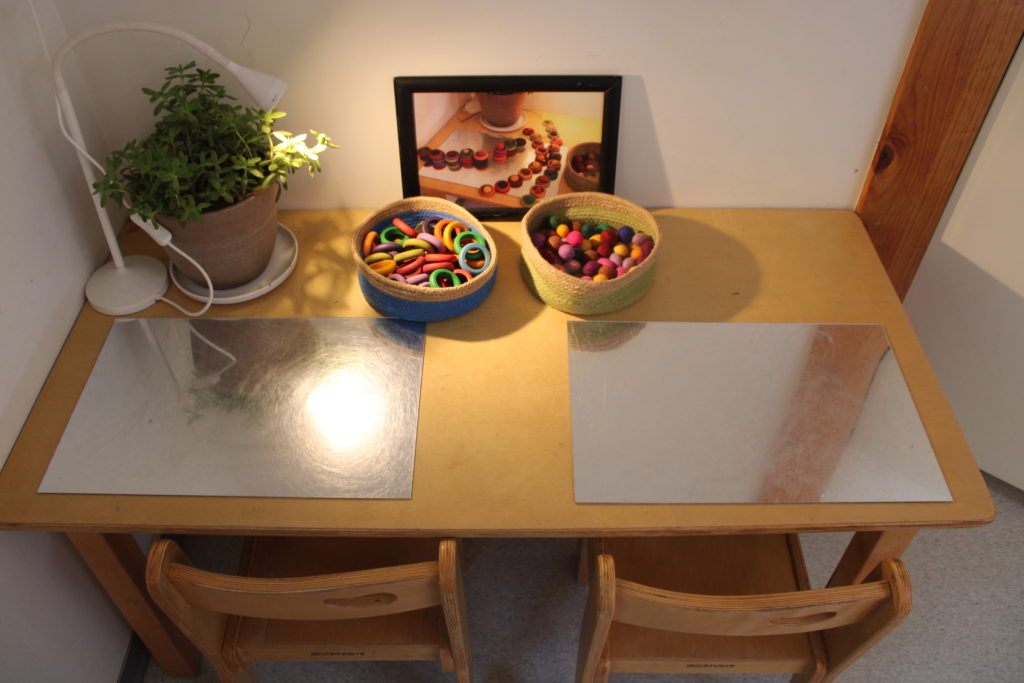One of the biggest difference families notice when they begin their journey at Flinders is the “less” factor. Less resources, less colour, less displays, less stuff. At times, this can be surprising, challenging, or even shocking to those of us who are used to more. We live in a more culture, driven primarily by commercialism and economic imperative; earlier is better, more is better. Families ask us; what do my children do all day? They notice and comment on the lack of toys, or mention how spare the environments seem.
All of this is intentional.

Loris Malaguzzi once referred to the environment of the early childhood centre as an aquarium, reflecting the interests of the people who inhabit it. But the thing about authentic representation is that it is built on relationship. We can’t accurately reflect the lives and interests of the people who inhabit our spaces until we know about the people who inhabit our space. This takes time. It is hard, deep and vulnerable work, to begin to share our values with others. Working from a foundation of relationships requires educators to create a safe space for families and children, to listen carefully, to observe closely, and then to use this information to make informed decisions about what we provide in the physical and emotional environment.
Research continually shows that learning in the early years is based on the quality of the relationships. When educators have strong, reciprocal relationships with children, they feel secure to explore and to take cognitive risks. If we begin the year with a busy, full room, we encourage children to focus on what is around them, perhaps even distracting them from the people with whom we want them to bond. We also risk overwhelming children; when one child might love high levels of sensory input like bright lights and loud music, another child might find this deeply unsettling.
Of course, all of this is a careful balance. We want children to feel inspired by the environment, and to find things there that they are curious about and enjoy. For this reason, our environments are constantly evolving; educators add, remove or replace resources according to their observations from moment to moment across the day. But always we are mindful of the importance of not overwhelming children.
When we start with less, when we focus on relationships, we provide space for the environment to shine because of the child, rather than an environment that shines in spite of the child.

This is one of my most favorite things about Flinders and i noticed it instantly when i first did a tour. The less. The simplicity. The calm. I remember coming home and telling my partner “it’s amazing, its like a wellness retreat, but for children”